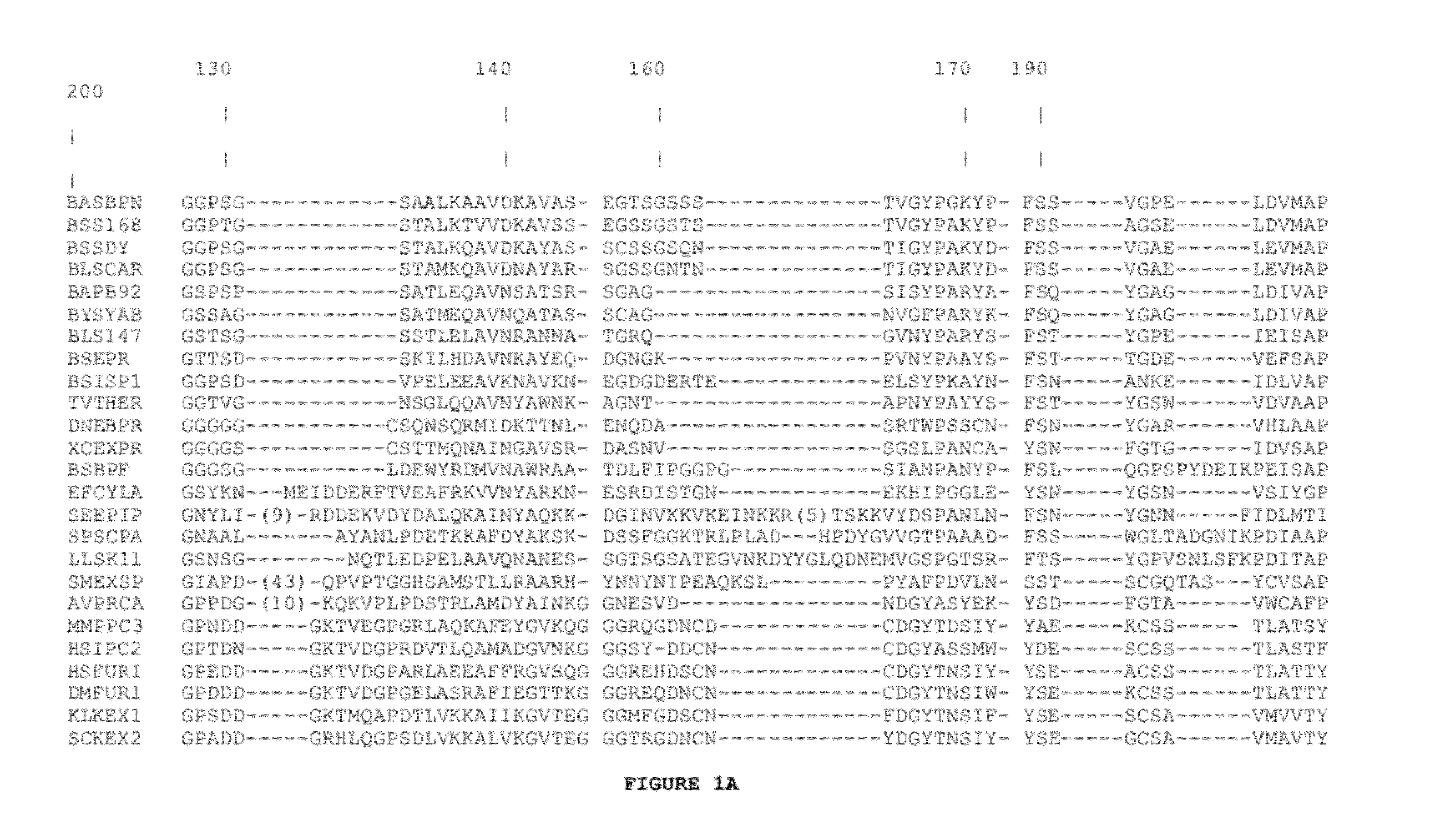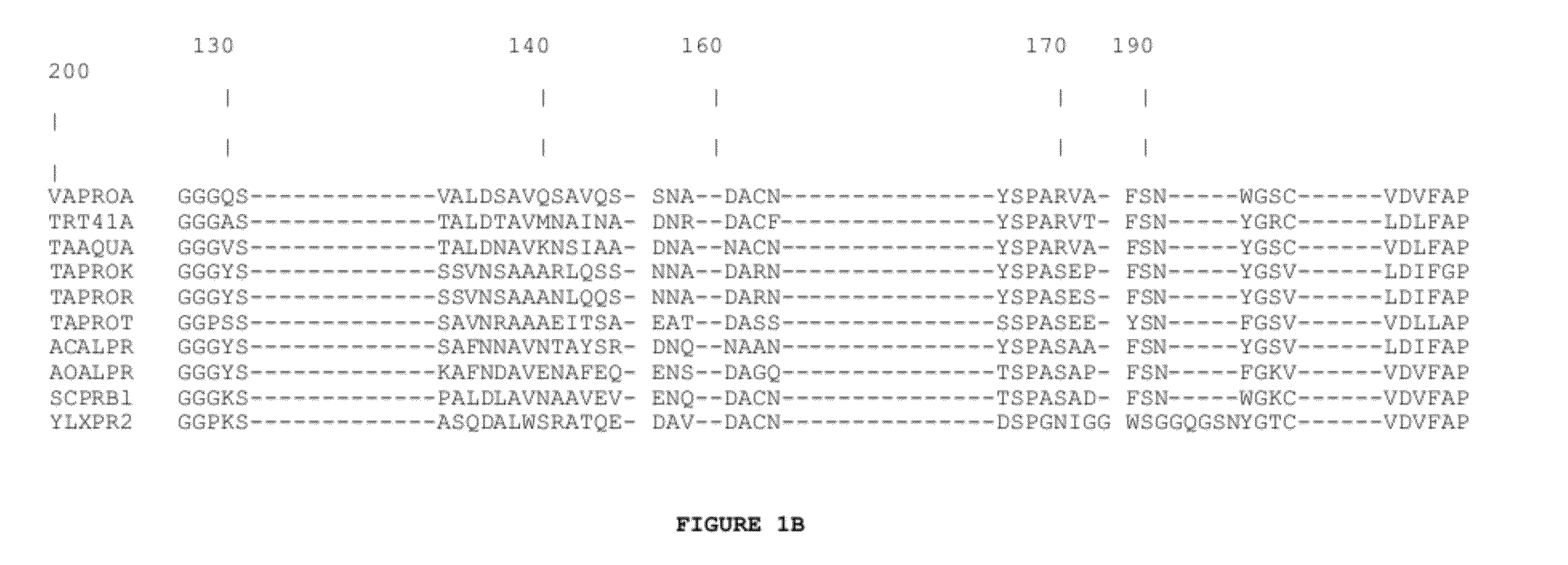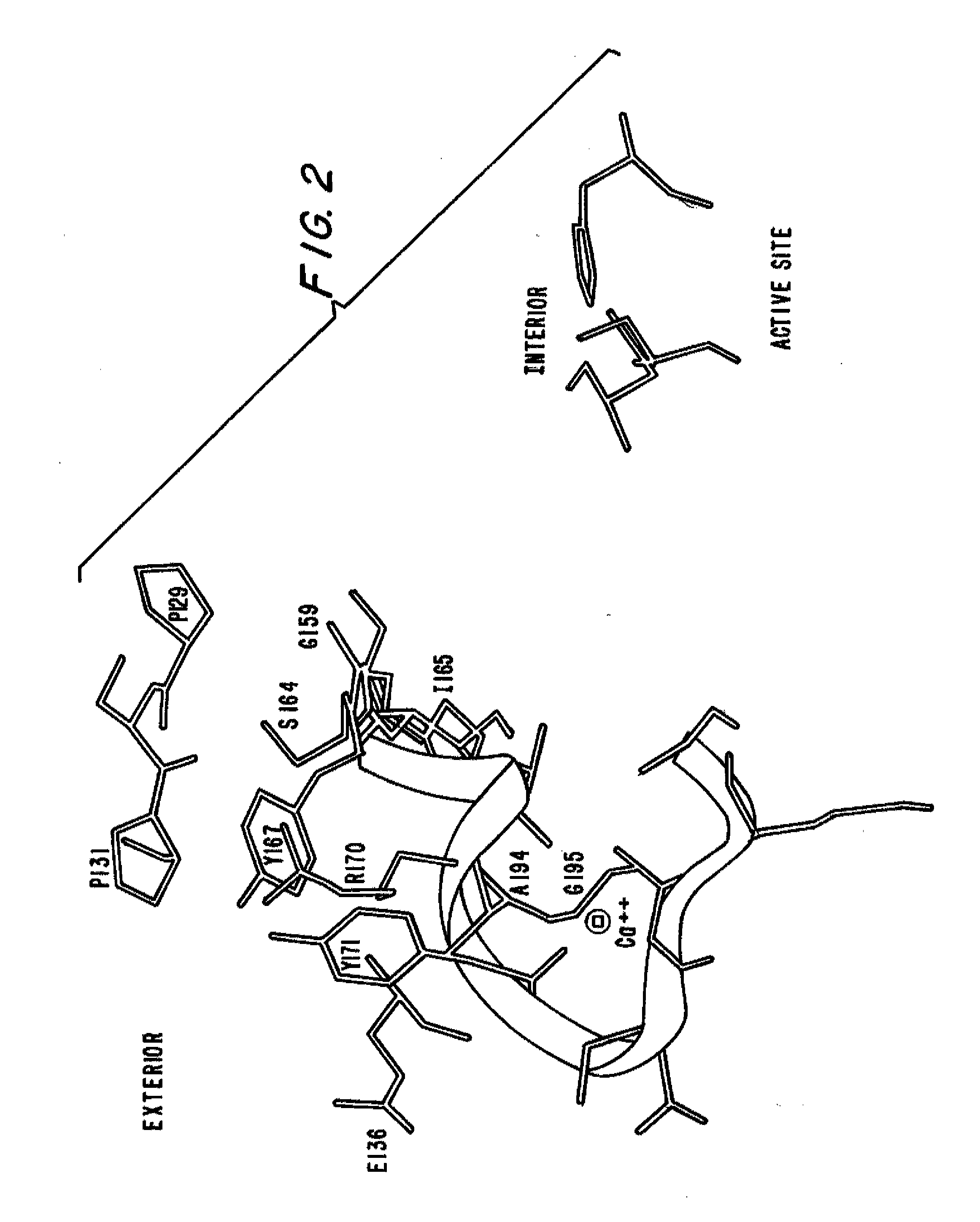Subtilase Variants
a technology of subtilase and variants, applied in the field of new products, can solve the problems of not exactly known which physical or chemical characteristics, and not giving data in respect of such variants, so as to improve the performance of detergents and improve storage stability
- Summary
- Abstract
- Description
- Claims
- Application Information
AI Technical Summary
Benefits of technology
Problems solved by technology
Method used
Image
Examples
example 1
Construction and Expression of Enzyme Variants:
[0330]A vector suited to a synthetic gene coding for subtilase 309 and its mutants was constructed. It is essentially a pUC19 plasmid [Yanish-Perron and Messing, 1985, Gene 33: 103-119], in which the multiple cloning site has been replaced by a linker containing the restriction sites used to separate five sub-fragments constituting the gene. The new linker was inserted into EcoRI-HindIII cut pUC19 thereby destroying these sites. The details of this construction are described in WO 92 / 19729 on pages 25-26 and in FIG. 1 (sheets 1 / 7-7 / 7) thereof, the content of which is hereby included by reference.
[0331]Each subfragment was made from 6 to 12 oligonucleotides. The oligonucleotides were synthesized on an automatic DNA synthesizer using phosphoramidite chemistry on a controlled glass support [Beaucage and Carruthers, 1981, Tetrahedron Letters 22: 1859-1869].
[0332]The five subfragments were isolated on a 2% agarose gel and inserted into pSX19...
example 2
Purification of Enzyme Variants:
[0338]This procedure relates to purification of a 10 liter scale fermentation of subtilisin 147, subtilisin 309 or mutants thereof.
[0339]Approximately 8 liters of fermentation broth were centrifuged at 5000 rpm for 35 minutes in 1 liter beakers. The supernatants were adjusted to pH 6.5 using 10% acetic acid and filtered on Seitz Supra S100 filter plates.
[0340]The filtrates were concentrated to approximately 400 ml using an Amicon CH2A UF unit equipped with an Amicon S1Y10 UF cartridge. The UF concentrate was centrifuged and filtered prior to absorption at room temperature on a Bacitracin affinity column at pH 7. The protease was eluted from the Bacitracin column at room temperature using 25% 2-propanol and 1 M sodium chloride in a buffer solution with 0.01 dimethylglutaric acid, 0.1 M boric acid and 0.002 M calcium chloride adjusted to pH 7.
[0341]The fractions with protease activity from the Bacitracin purification step were combined and applied to a ...
example 3
Stability in Detergent Compositions Comprising Enzyme Variants
PUM
| Property | Measurement | Unit |
|---|---|---|
| molecular weights | aaaaa | aaaaa |
| pH | aaaaa | aaaaa |
| distance | aaaaa | aaaaa |
Abstract
Description
Claims
Application Information
 Login to View More
Login to View More - R&D
- Intellectual Property
- Life Sciences
- Materials
- Tech Scout
- Unparalleled Data Quality
- Higher Quality Content
- 60% Fewer Hallucinations
Browse by: Latest US Patents, China's latest patents, Technical Efficacy Thesaurus, Application Domain, Technology Topic, Popular Technical Reports.
© 2025 PatSnap. All rights reserved.Legal|Privacy policy|Modern Slavery Act Transparency Statement|Sitemap|About US| Contact US: help@patsnap.com



